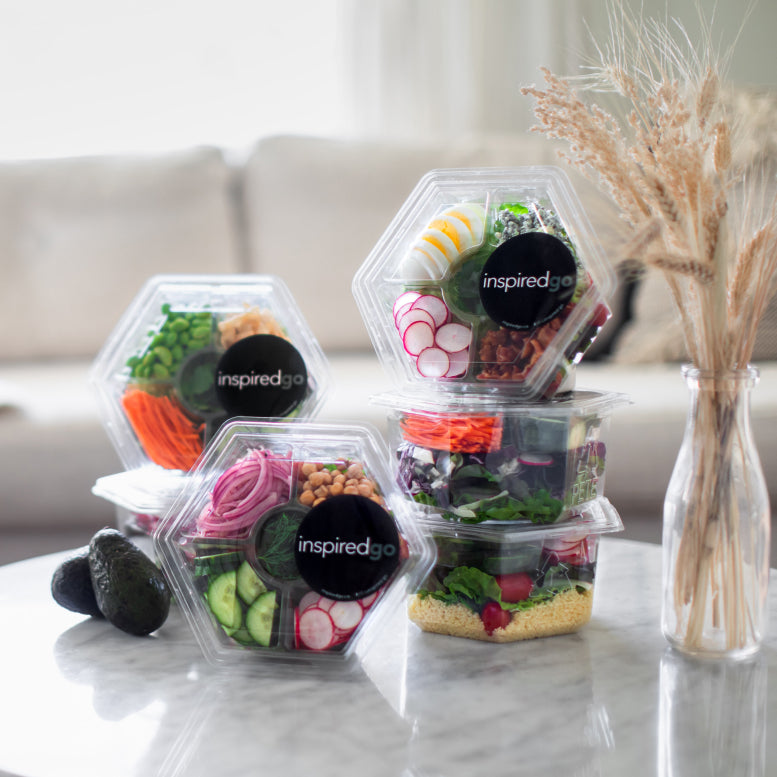How Many Calories In A Taco Salad?
Table of Contents
1. Caloric Content of Taco Salad
2. How Many Calories Are in a Salad?
3. How Many Calories in Chicken and Salad?
4. What Is the Most Nutritious Salad Green?
1. Caloric Content of Taco Salad
A taco salad, while packed with flavor and satisfying textures, can vary greatly in its caloric content. Depending on its ingredients and portion size, the calorie count can range anywhere from 300 to over 1000 calories. For instance, a basic taco salad typically includes ground beef, cheese, tomatoes, lettuce, and a crunchy tortilla shell. When prepared with lean beef and moderate cheese, the calorie count can be quite reasonable. However, additions like guacamole, sour cream, and high-fat dressings can significantly increase the calorie count. Restaurants and fast-food versions of taco salad often skew towards the higher end of the caloric scale due to larger portions and additional high-calorie ingredients. For a healthier version, consider making a homemade taco salad with lean protein, fresh vegetables, and a light dressing to control both the portion size and the ingredients' nutritional value.
Order fresh salads today →


2. How Many Calories Are in a Salad?
The calorie content of a salad varies depending on its ingredients, portion size, and dressing. Salads featuring leafy greens, fresh vegetables, and lean proteins are typically low in calories while being nutrient-dense. However, adding ingredients like creamy dressings, croutons, or fried proteins can significantly increase calorie counts. A basic garden salad might contain fewer than 150 calories, while a chicken Caesar salad with dressing can range from 500–800 calories. Salad delivery services often provide detailed nutritional information, helping customers make informed choices about their meals. Pre-portioned salads reduce the risk of overeating and ensure balanced nutrition. With access to transparent calorie counts, customers can confidently enjoy delicious, satisfying salads that align with their dietary goals.
Choose your salads and schedule delivery →
3. How Many Calories in Chicken and Salad?
Chicken salads are a popular meal option, combining lean protein with fresh vegetables for a balanced, satisfying dish. The calorie count in a chicken salad depends on factors like chicken preparation, dressing choice, and additional toppings. Grilled chicken typically adds fewer calories compared to fried or breaded chicken. A standard grilled chicken salad usually contains between 300–500 calories, while creamier dressings and fried chicken can push calorie counts higher. Salad delivery services provide clear nutritional information, allowing customers to make informed choices about their orders. With options to customize salads—such as choosing low-calorie dressings or extra vegetables—customers can easily tailor their meals to fit their dietary goals.
Get fresh salads and snacks delivered →
4. What Is the Most Nutritious Salad Green?
Inspired Go ensures every salad starts with the freshest and most nutritious greens, carefully selected for their health benefits and flavor profiles. Leafy greens like spinach, kale, and arugula are packed with essential vitamins, minerals, and antioxidants. Spinach provides iron and vitamin K, while kale is rich in calcium and vitamin C. Arugula, with its peppery flavor, offers folate and nitrates for improved blood flow. Inspired Go’s salads feature these greens prominently, often in creative combinations that maximize both taste and nutrition. Customers can trust that each leafy green is sourced responsibly to ensure peak freshness and nutrient density. With Inspired Go’s thoughtful ingredient curation, every bite delivers powerful health benefits, making their salads an excellent choice for those prioritizing nutrition in their meals.
Try our fresh, ready-to-eat salads →
Frequently Asked Questions
The most nutritious salad greens are dark leafy varieties like spinach, kale, and arugula. These greens are packed with essential vitamins, including A, C, and K, as well as minerals like calcium and iron. Kale is particularly rich in antioxidants, while spinach offers significant amounts of folate and magnesium. Choosing a mix of dark greens enhances both the flavor and nutritional value of your salad.
A healthy salad includes a balance of nutrient-dense ingredients like leafy greens, fresh vegetables, lean proteins, and healthy fats. For example, a base of spinach and kale, paired with grilled chicken, cherry tomatoes, avocado, and a light olive oil dressing, creates a wholesome meal. Avoid fried toppings or sugary dressings, as they add empty calories, and opt for natural ingredients to maximize nutrition.
Yes, eating salad daily is a healthy habit when it includes a variety of fresh, nutrient-rich ingredients. Salads offer fiber for digestion, antioxidants for immunity, and essential nutrients like potassium and folate. Regularly eating salads can support weight management and improve energy levels. To avoid monotony, vary your greens, proteins, and toppings to keep meals satisfying and nutritionally balanced.
Healthy salad dressings are typically made with simple, natural ingredients. Olive oil-based dressings, paired with balsamic vinegar or fresh lemon juice, provide healthy fats and enhance flavor without unnecessary calories. Avoid store-bought dressings with high sugar or preservatives. For a creamy alternative, opt for homemade dressings using Greek yogurt or avocado for added nutritional benefits.
Yes, salads are incredibly beneficial for overall health when prepared with fresh, whole ingredients. They are low in calories and high in vitamins, minerals, and antioxidants, supporting heart health, digestion, and immunity. Adding a mix of proteins and healthy fats creates a satisfying, nutrient-dense meal. Regularly incorporating salads into your diet can promote long-term well-being and energy.

